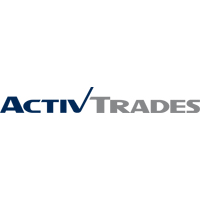The U.S. Department of the Treasury today released a new report showing that participants receiving capital through the Small Business Lending Fund (SBLF) boosted lending for the seventh straight quarter. In total, SBLF participants have increased small business lending by about $8.9 billion since the depths of the recession in 2009. This increased lending represents an estimated 38,000 additional small business loans over baseline levels.

“In every region of the country, the Obama Administration’s Small Business Lending Fund is supporting small and family-owned businesses with the funds they need to create jobs and grow,” said Deputy Secretary of the Treasury Neal Wolin. “This quarter’s report shows that SBLF participants are continuing to help thousands of small businesses invest, hire, and expand in their local communities.”
The report also shows that SBLF participants increased their lending by $1.5 billion more than the prior quarter, representing the second highest increase since the start of the program. Community banks participating in SBLF have increased business lending by 38 percent, a substantially greater amount than a peer group of similar banks across median measures of size, geography, and loan type.
Small businesses play a critical role in the U.S. economy and are central to growth and job creation. In the aftermath of the recession and credit crisis, small business owners faced disproportionate challenges, including difficulty accessing capital.
The SBLF, established as part of the Small Business Jobs Act that President Obama signed into law in 2010, encourages community banks to increase their lending to small businesses, helping those companies expand their operations and create new jobs. Treasury invested more than $4 billion in 332 institutions through the SBLF. Collectively, these institutions operate in more than 3,000 locations across 48 states. This report includes information on the 320 institutions that continue to participate in the program as of March 15, 2013, including 270 community banks and 50 community development loan funds.
SBLF encourages lending to small businesses by providing capital to community banks and CDLFs with less than $10 billion in assets. The dividend or interest rate a community bank pays on SBLF funding is reduced as the bank increases its lending to small businesses – providing a strong incentive for new lending to small businesses so that these firms can expand and create jobs. As of December 31, 2012, the average rate paid by community banks on SBLF capital was 1.8 percent. Individual community banks can reduce the rate they pay to one percent if they increase qualified small business lending by 10 percent over their baseline.
The SBLF is one part of the Obama Administration’s comprehensive agenda to help small businesses access the capital they need to invest and hire. Treasury also administers the State Small Business Credit Initiative (SSBCI), which allocates $1.5 billion to state programs designed to leverage private financing to spur $15 billion in new lending to small businesses and small manufacturers.

 Hot Features
Hot Features













